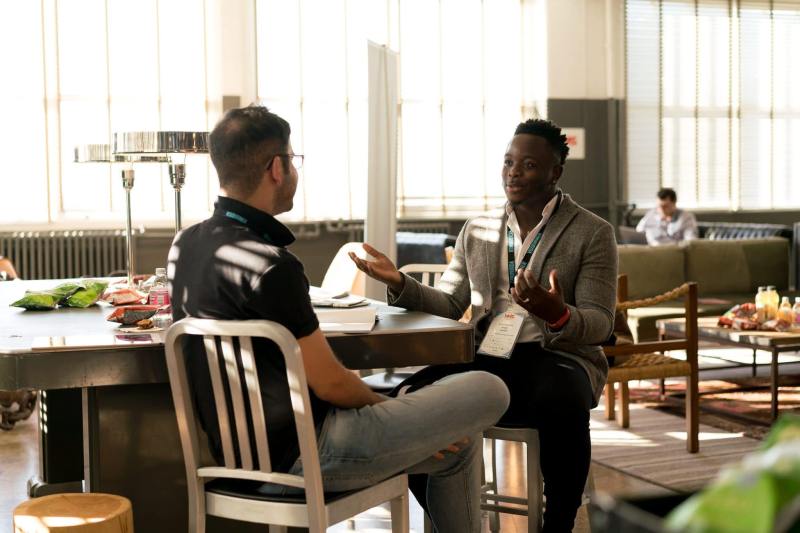When I first pitched doing weekly spotlights on students around campus, what I didn’t tell my editor was that I wanted to do these pieces for selfish reasons too. I’m an impatient person; I know that. As such, the period between first being introduced to someone and first having meaningful, unscripted interactions with them seems to last forever, a labyrinthine small-talk hell that neither party enjoys but both valiantly soldier through in the name of social customs and the hope of eventual release. A fortuitous Google calendar alert perhaps or a major natural disaster.
Seriously though, I do like people. I love hearing people talk about themselves, the things they care about and what’s been frustrating them lately. The more I learn about the world and the more people I meet, the clearer it becomes that there is so much depth and breadth to the human experience that I will never live it all myself — not even close.
So the next best thing is to get little honest glimpses of what other people are seeing and cobble that together into my own worldview. What better way to do that than by interviewing people with the explicit intent of having them talk on the subject they know most about: themselves?
Here’s what I found. People are totally, completely, without fail not only capable of speaking about more than their current classes, majors and residences but in fact happy to do so. Knowing I was trying to get an idea of their life stories, people didn’t want to spend time wading through fluff! And neither did I.
It’s not that those things didn’t come up, but they were often afterthoughts. Turns out none of the people I spoke to were defined by their academic standing or had a burning passion for discussing the merits (or lack thereof) of dining hall food. We had 18 years of life before we got here, remember? That’s 18 years of stuff mattering to us that wasn’t Stanford, 18 years of being shaped into a certain sort of person in specific circumstances that nobody else here shares. Eighteen years informing the way you twist, bend, stiffen, pull, break, grow and push back when this school pushes you (and if it hasn’t yet, it will).
I heard about alcoholism, abuse, depression, things that made the other person cry and made me want to join in, too. I also heard about people falling in love, finding work that they didn’t just excel at but enjoy, exploring foreign cities, skimming down mountains, saving lives.
It felt like a gift to talk to the people I did, even the ones I ended up not writing articles about. And though it wasn’t always an exchange of deepest, darkest secrets, it was more than talking to somebody who might be reciting from a computer-generated set of Stanford student characteristics. Name, major, home state, stress level.
These were people that I often wished I could be friends with and in all cases was happy to have spent time with. And, admittedly, “I’m only asking these possibly uncomfortable questions because I must for this article,” is a decent excuse to skip the fluff. In real life, it’s easier to err on the side of politeness than to probe into what could be personal territory.
But I remember those conversations. They felt like real, meaningful human interactions, even though most of them turned out to be the first and last time the two of us spoke.
With my mini-series over, I take these lessons to the real world. Listen, and let other people fill the pauses. Ask questions, no matter how random or deep. Give people space to opt out from answering said questions because sometimes I can be a bit much.
And most importantly? Remember that everyone I meet, even if all we talk about is the weather, could tell me a wonderful story about themselves too, if only we had a few hours.
Contact Katiana Uyemura at kuyemura ‘at’ stanford.edu.
